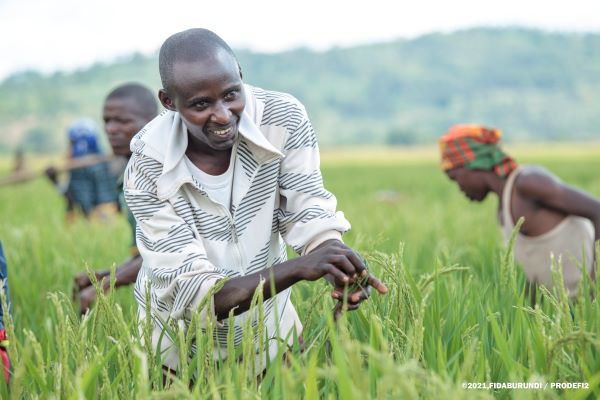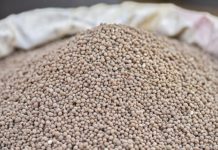The International Fund for Agricultural Development (IFAD) and the Ministry of Finance, Budget and Economic Planning signed a US$3 million grant to help mitigate the ongoing impacts of the Ukraine crisis. The grant is part of IFAD’s Crisis Response Initiative (CRI) which seeks to protect livelihoods and build resilience in rural communities by addressing the urgent needs caused by the crisis, while tapping into new market opportunities for small-scale producers.
Agriculture is the backbone of Burundi’s economy and is the primary livelihood for 90 per cent of the country’s population. However, the sector is characterized by over exploitation and degradation of land, significant post-harvest losses, unequal access to land, disease outbreaks, poor agricultural practices, and limited access to inputs and markets. The continuous impacts from climate change and the recent COVID19 pandemic has increased the number of people going to bed hungry.
With the inflationary effects the Ukraine crisis has had on food and fertilizer prices the situation has become dire, putting these commodities out of reach for Burundi and many other countries that import them.
“IFAD has supported Burundi for more than 40 years, helping the country build the agriculture sector and resilience of small-scale farmers who are the most affected by these crises. To be successful, IFAD continuously adapts its investments to meet the needs of Member states. With the shocks Burundi is currently facing, the grant funded by CRI offers crucial support to small-scale farmers to help them cope with the imminent challenges,” Dagmawi Habte-Selassie, IFAD Country Director, Burundi.
The funds will be disbursed through the Agricultural Production Intensification and Vulnerability Reduction Project (PIPARV-B) to help 255,480 poor rural people protect their livelihoods and safeguard their food security. Small-scale farmers in Gitega, Karusi, Kayanza, Ngozi and Muyinga will receive hybrid maize seeds, climate resilient vegetable seeds, mushroom and pig kits.
Yesterday, IFAD celebrated its clear commitment to accompany Burundi in the transformation of its food systems with the inauguration of its new office space in Bujumbura. Though the Fund has operated in the country since the 1980s, this reflects the organization’s decentralization efforts to bring IFAD closer to the people it serves. The office, under the guidance of the Country Director, will coordinate in-country investment and policy engagements with partners and stakeholders. To date, IFAD has co-financed 14 projects and programmes in Burundi for a total investment of US$681 million reaching over one million rural households.










Agriculture is good filled of our living and it us in time of feeding
Comments are closed.